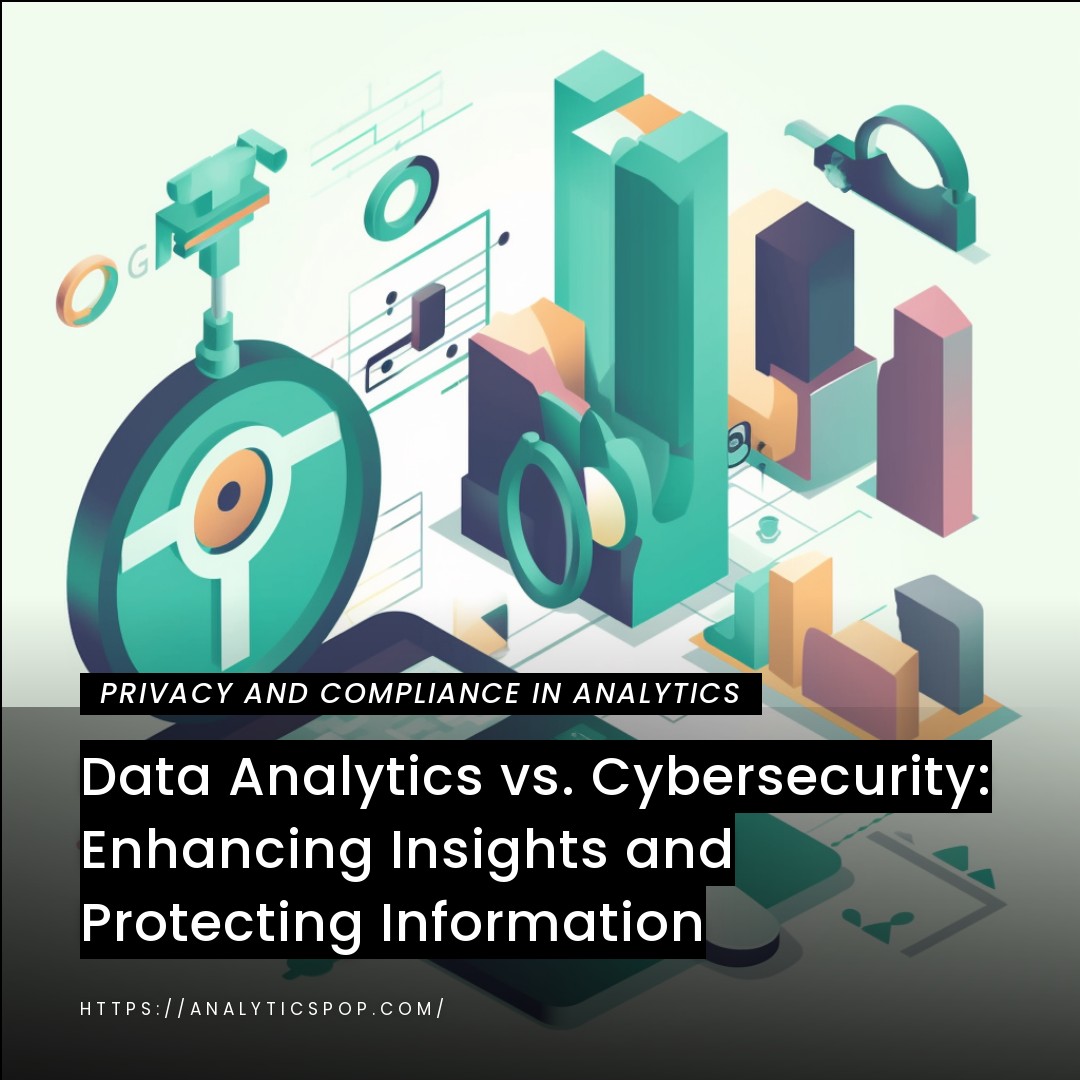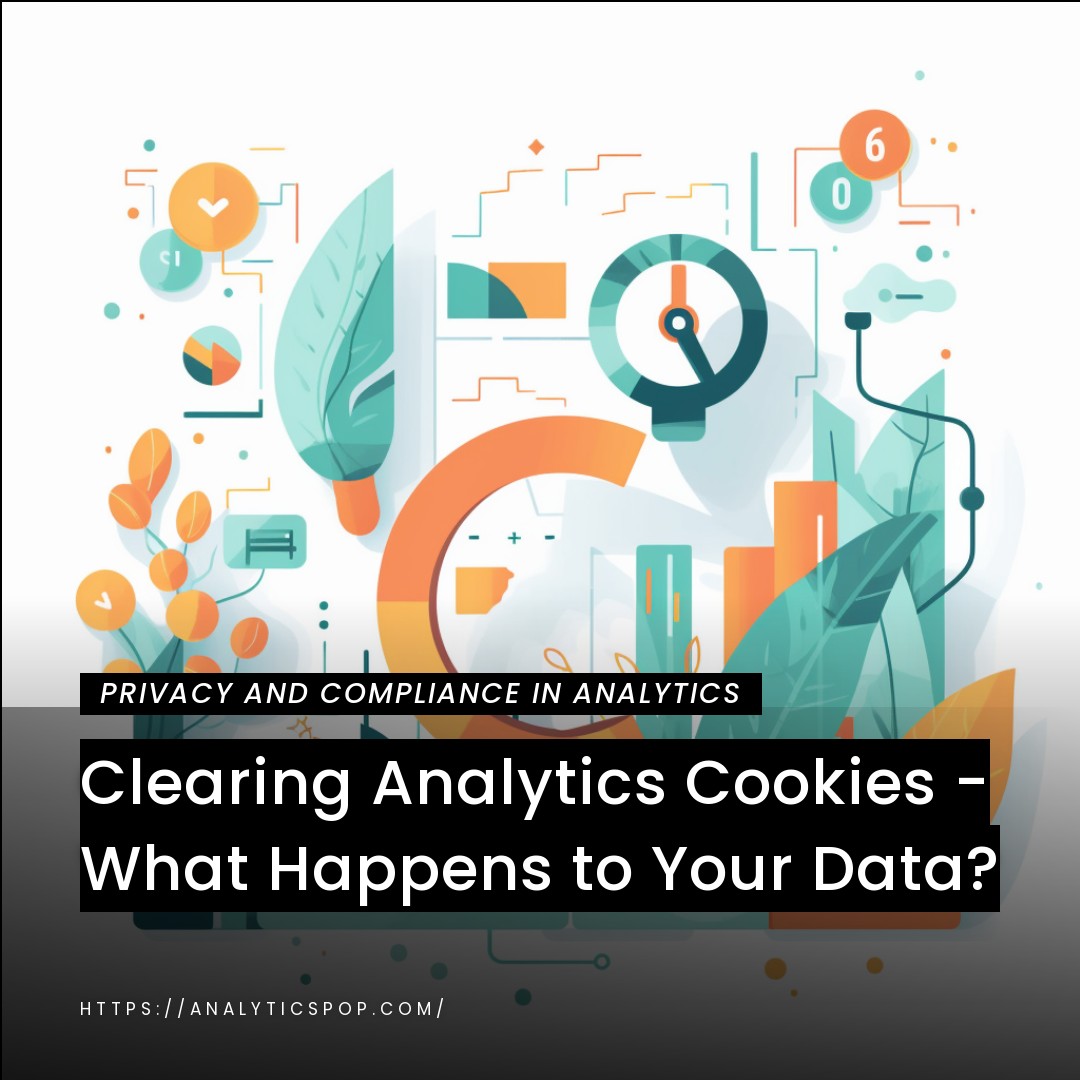Safeguarding Data Privacy: CNIL-Compliant Analytics Solutions for Enhanced Data Protection
Protecting data privacy is of paramount importance in today’s digital landscape. With the increasing concern over data breaches and unauthorized access, organizations must adopt analytics solutions that comply with stringent regulations like CNIL (Commission Nationale de l’Informatique et des Libertés) to ensure enhanced data protection.
CNIL compliance encompasses various measures to safeguard data privacy. Implementing robust encryption techniques is essential to prevent unauthorized access to sensitive data. Organizations can significantly reduce the risk of data breaches by encrypting data both in transit and at rest.
Furthermore, pseudonymization techniques play a crucial role in protecting individual privacy. Businesses can analyze data by replacing identifiable information with pseudonyms while ensuring individuals cannot be directly identified. This technique maintains data utility for analytics while minimizing re-identification risk.
Anonymization is another vital aspect of CNIL-compliant analytics solutions. By removing or irreversibly altering personal identifiers, such as names or social security numbers, data can be anonymized, ensuring the privacy of individuals.
Organizations must also implement stringent access controls to limit only data access to authorized personnel. Role-based access and multi-factor authentication can significantly reduce the risk of unauthorized.
Key difference: CNIL and Data Protection in Analytics
The Commission Nationale de l’Informatique et des Libertés (CNIL) is the French data protection authority responsible for upholding data protection and privacy rights in France. In analytics, CNIL plays a crucial role in ensuring that organizations comply with data protection regulations when collecting, processing, and analyzing data for analytical purposes.
Data protection in analytics refers to safeguarding the privacy and security of personal data used in analytics processes. As analytics involves collecting and analyzing vast amounts of data, including personally identifiable information (PII), it is essential to handle this data in compliance with applicable data protection laws and regulations.
CNIL enforces regulations such as the General Data Protection Regulation (GDPR) within the European Union and the French Data Protection Act (Loi Informatique et Libertés). These regulations govern how organizations should collect, process, and protect personal data, including data used in analytics.
In analytics, organizations must ensure that they have valid legal grounds to collect and process data, obtain informed consent from individuals when necessary, implement appropriate security measures to protect the data, and comply with individuals’ rights regarding their data.
CNIL provides guidelines, recommendations, and enforcement actions to ensure that organizations respect individuals’ privacy rights, maintain data security, and comply with data protection regulations in analytics. By adhering to CNIL’s guidelines and complying with data protection regulations, organizations can build trust with their users, protect individuals’ privacy, and ensure responsible and ethical use of data in analytics processes.

What is CNIL (Commission Nationale de l'Informatique et des Libertés)?
The Commission Nationale de l’Informatique et des Libertés (CNIL) is the French data protection authority responsible for ensuring the protection of personal data and the privacy rights of individuals. Established in 1978, CNIL operates independently and has legal powers to regulate and supervise data processing activities.
CNIL’s primary objective is to ensure that organizations’ collection, storage, and use of personal data comply with relevant laws and regulations, including the General Data Protection Regulation (GDPR) within the European Union. It sets guidelines and advises businesses, public authorities, and individuals on data protection matters.
The key responsibilities of CNIL include:
- Regulation and Compliance: CNIL develops and enforces regulations related to data protection and privacy. It ensures that organizations adhere to these regulations and handles complaints and breaches of data protection laws.
- Authorization and Registration: Certain types of data processing activities require prior authorization or registration with CNIL. It assesses and grants authorizations based on the nature and sensitivity of the data involved.
- Guidance and Awareness: CNIL provides guidance and recommendations to organizations to help them comply with data protection laws. It also promotes awareness among individuals about their rights and obligations regarding personal data.
- Inspection and Control: CNIL can conduct inspections and audits of organizations to verify compliance with data protection regulations. It can impose sanctions, fines, or corrective measures in case of non-compliance.
- International Cooperation: CNIL collaborates with other data protection authorities globally to ensure consistent standards and enforcement across borders.
CNIL is crucial in safeguarding data privacy and upholding individuals’ rights in France. Its regulatory actions and enforcement efforts foster a culture of data protection and privacy in both the public and private sectors.
Understanding the importance of data protection in analytics
Data protection holds immense importance in the field of analytics due to several key reasons. Let’s explore them:
- Privacy Preservation: Data protection ensures the privacy and confidentiality of individuals’ sensitive information. Analytics often involves processing large volumes of data, including personally identifiable information (PII). By implementing robust data protection measures, organizations can mitigate the risk of unauthorized access or breaches, safeguarding individuals’ privacy.
- Compliance with Regulations: Numerous regulations, such as the GDPR, CCPA, and HIPAA, require organizations to handle data securely and lawfully. Non-compliance can lead to severe penalties and reputational damage. By prioritizing data protection in analytics, businesses can adhere to these regulations and maintain legal compliance.
- Trust and Customer Confidence: Data breaches and privacy scandals have eroded public trust in how organizations handle personal data. Businesses can restore and strengthen customer confidence by committing to data protection. When customers trust that their data is handled securely, they are more likely to engage with analytics initiatives and share their information for mutually beneficial purposes.
- Data Quality and Accuracy: Data protection practices can positively impact the quality and accuracy of analytics outcomes. By ensuring data integrity and protecting against unauthorized modifications, organizations can rely on high-quality data for analysis. This, in turn, leads to more accurate insights, decision-making, and improved business outcomes.
- Ethical Considerations: Responsible data handling is an ethical imperative. It recognizes the rights and dignity of individuals and promotes fair and transparent data practices. Prioritizing data protection in analytics reflects an organization’s commitment to ethical conduct, fostering a positive reputation and sustainable stakeholder relationships.
- Risk Mitigation: Data breaches and unauthorized access to sensitive information can result in significant financial and operational consequences. Organizations can proactively mitigate risks, prevent financial losses, protect their intellectual property, and preserve their competitive advantage by implementing data protection measures.
Data protection is crucial in analytics to preserve privacy, comply with regulations, build trust, ensure data quality, uphold ethical standards, and mitigate risks. By integrating robust data protection practices into analytics processes, organizations can navigate the data-driven landscape while respecting individuals’ privacy and maintaining a solid foundation of trust.

Challenges and concerns with using Google Analytics from a compliance perspective
Using Google Analytics can present certain challenges and concerns from a compliance perspective. While Google Analytics offers powerful insights into website and app usage, organizations must navigate potential compliance issues to ensure data protection and privacy. Here are some key challenges and concerns:
- Data Privacy Compliance: Organizations must ensure that their use of Google Analytics aligns with relevant data privacy regulations, such as the GDPR or CCPA. This involves obtaining proper user consent, providing clear privacy notices, and implementing mechanisms to honor users’ rights, such as data access and deletion requests.
- Data Sharing and Third-Party Integration: Google Analytics allows data sharing with other Google services and third-party integrations. Organizations must carefully assess and control the data shared with these services to ensure compliance. They should review and update data sharing settings, implement data protection agreements with third parties, and ensure that data is only used for authorized purposes.
- IP Address Anonymization: Google Analytics collects IP addresses, which can be considered personal data in some jurisdictions. To address this concern, organizations can enable IP address anonymization within Google Analytics settings, truncating the IP addresses and minimizing the risk of identification.
- Cookie Consent and Opt-Out: Google Analytics employs cookies to track user behavior. Compliance requires organizations to obtain valid cookie consent from users, provide transparent information about cookie usage, and offer an opt-out mechanism for users who do not wish to be tracked.
- Data Retention and Storage: Organizations must define appropriate data retention periods within Google Analytics to comply with regulations. They should periodically review and delete data that is no longer necessary for analytics purposes.
- Security and Access Controls: Organizations need to ensure appropriate security measures are in place to protect data collected through Google Analytics. This includes restricting access to authorized personnel, implementing secure authentication mechanisms, and encrypting data during transmission.
- Cross-Border Data Transfers: If data collected through Google Analytics is transferred to countries outside the organization’s jurisdiction, compliance with data transfer regulations, such as the GDPR’s adequacy requirements or appropriate safeguards (e.g., Standard Contractual Clauses), is essential.
Addressing these challenges and concerns requires organizations to carefully configure and customize their use of Google Analytics, implement necessary policies and procedures, and regularly assess compliance with relevant regulations. It is advisable to consult legal or data protection experts to ensure adherence to specific compliance requirements within their jurisdiction.
Exploring CNIL-Compliant Analytics Solutions
CNIL-compliant analytics solutions are designed to meet the stringent data protection requirements set forth by the Commission Nationale de l’Informatique et des Libertés (CNIL). Here are some key aspects of such solutions:
- Data Minimization: CNIL emphasizes collecting and processing only the necessary data for analytics. CNIL-compliant analytics solutions prioritize data minimization by collecting only relevant and essential data, reducing the risk of unauthorized access or data breaches.
- Consent Management: Obtaining valid user consent is crucial for CNIL compliance. Analytics solutions should provide clear and transparent consent mechanisms, allowing users to give informed consent for data processing. CNIL-compliant solutions often include cookie banners, consent logs, and user preference management to facilitate proper consent management.
- Anonymization and Pseudonymization: CNIL encourages using anonymization and pseudonymization techniques to protect individual privacy. Analytics solutions should incorporate robust anonymization and pseudonymization methods, such as hashing or tokenization, to ensure that personally identifiable information (PII) is not directly linkable to individuals during data processing and analysis.
- User Rights and Transparency: CNIL strongly emphasizes individuals’ rights and transparency regarding data processing. Analytics solutions should provide features for individuals to exercise their rights, such as accessing their data, rectifying inaccuracies, and requesting erasure. Additionally, users should be provided transparency features like privacy notices, data processing information, and opt-out options.
- Security and Data Protection: CNIL-compliant analytics solutions prioritize robust security measures to protect data from unauthorized access, breaches, or loss. This includes implementing encryption for data transmission and storage, strong access controls, regular security audits, and ensuring compliance with industry best practices for data protection.
- Data Retention and Deletion: CNIL requires organizations to define appropriate data retention periods and delete data when no longer necessary. Analytics solutions should provide the functionality to manage data retention policies and facilitate data deletion requests in compliance with CNIL guidelines.
- Audit Trails and Documentation: CNIL-compliant analytics solutions often include features to maintain audit trails and document data processing activities. This helps demonstrate compliance, track data handling processes, and support accountability and transparency.
Adopting CNIL-compliant analytics solutions demonstrates a commitment to protecting data privacy, complying with CNIL regulations, and respecting individuals’ rights. Organizations should carefully evaluate the features and capabilities of analytics solutions to ensure they align with CNIL’s guidelines and best practices for data protection and privacy.

CNIL's guidelines for analytics and data protection
CNIL (Commission Nationale de l’Informatique et des Libertés) provides guidelines and recommendations to ensure analytics and data protection practices align with legal requirements. Here are some key guidelines issued by CNIL:
- Data Minimization: CNIL emphasizes collecting and processing only the data necessary for the intended purpose. Organizations should avoid excessive data collection and focus on gathering relevant information to minimize privacy risks.
- Lawfulness and Consent: CNIL highlights the importance of obtaining valid consent for data processing. Organizations must ensure that individuals provide informed and specific consent before collecting and using their data for analytics purposes. Consent should be freely given and easily revocable.
- Anonymization and Pseudonymization: CNIL encourages using anonymization and pseudonymization techniques to protect individual privacy. Organizations should consider implementing these measures to ensure data cannot be directly linked to specific individuals during analytics processes.
- Transparency and Information: CNIL stresses the need for transparency in data processing. Organizations must provide individuals with clear and accessible information about the purpose, methods, and recipients of data processing and their rights regarding their personal data.
- Security and Data Protection: CNIL emphasizes implementing appropriate technical and organizational measures to ensure data security. Organizations should employ encryption, access controls, and regular security assessments to protect data from unauthorized access, loss, or alteration.
- User Rights: CNIL highlights individuals’ rights regarding their data. Organizations must enable individuals to exercise their rights by accessing their data, rectifying inaccuracies, and requesting erasure. They should establish mechanisms to handle data subject requests efficiently and within legal timeframes.
- International Data Transfers: CNIL provides guidelines for transferring personal data outside the European Economic Area (EEA). Organizations must ensure that appropriate safeguards, such as standard contractual clauses or adequacy decisions, are in place to protect data when transferred to countries without adequate data protection.
These are some of the key guidelines provided by CNIL to promote compliance with data protection and privacy regulations. Organizations should consult the CNIL website and its specific guidelines for detailed information and requirements related to analytics and data protection in their respective jurisdictions.
Alternative analytics solutions that comply with CNIL regulations
Several alternative analytics solutions can help organizations comply with CNIL regulations while still gaining valuable insights from their data. Here are a few examples:
- Matomo (formerly Piwik): Matomo is an open-source web analytics platform that gives organizations full control over their data. It can be self-hosted, ensuring that data stays within the organization’s infrastructure and reducing reliance on third-party services. Matomo offers features such as anonymization, consent management, and data ownership, aligning with CNIL’s data protection guidelines.
- AT Internet: AT Internet is a digital analytics solution focusing on privacy and data protection. It provides features like consent management, IP address anonymization, and data retention controls. AT Internet is committed to complying with regulations, including GDPR and CNIL, and offers tools to help organizations meet their data protection requirements.
- Snowplow Analytics: Snowplow is an open-source event tracking platform that allows organizations to capture and process their data in a customizable and privacy-conscious manner. It provides data ownership and customizable tracking and supports anonymization techniques. Snowplow enables organizations to have fine-grained control over their analytics implementation while adhering to CNIL regulations.
- eStat: eStat is a web analytics solution developed by the French company AT Internet. It is designed to comply with CNIL regulations and offers features such as user consent management, IP address anonymization, and granular data retention controls. eStat provides organizations with analytics insights while prioritizing data protection and privacy.
- Countly: Countly is an open-source mobile and web analytics platform that offers on-premises deployment options. It enables organizations to track and analyze user interactions while maintaining control over their data. Countly includes features like anonymization, user consent management, and flexible data retention policies, aligning with CNIL’s guidelines.
When selecting an alternative analytics solution, organizations should thoroughly assess the features, capabilities, and compatibility with their specific data protection requirements. It is also advisable to consult legal experts or privacy professionals to ensure that the chosen solution meets CNIL compliance standards and aligns with the organization’s specific needs.

Comparing features, functionalities, and advantages of CNIL-compliant tools
Comparing features, functionalities, and advantages of CNIL-compliant tools can help organizations make informed decisions regarding their analytics solutions. Here, I’ll provide a comparison of some key aspects:
Matomo (formerly Piwik):
- Features: Matomo offers customizable analytics tracking, data ownership, consent management, IP address anonymization, and data retention controls.
- Advantages: Being self-hosted, Matomo provides full control over data, reducing reliance on third-party services. It is open-source and can be customized to meet specific CNIL compliance requirements.
AT Internet:
- Features: AT Internet provides consent management, IP address anonymization, data retention controls, and compliance with GDPR and CNIL regulations.
- Advantages: AT Internet is a trusted analytics solution focusing on privacy and data protection. It offers comprehensive features and support to help organizations comply with CNIL guidelines.
Snowplow Analytics:
- Features: Snowplow is an open-source event tracking platform that enables customizable data collection, data ownership, and IP address anonymization and supports privacy-enhancing techniques.
- Advantages: Snowplow offers organizations granular control over their analytics implementation, ensuring data protection and compliance with CNIL regulations. Its flexibility and customization options make it suitable for specific requirements.
eStat:
- Features: eStat, developed by AT Internet, provides user consent management, IP address anonymization, granular data retention controls, and compliance with CNIL guidelines.
- Advantages: eStat is specifically designed to comply with CNIL regulations, making it a reliable choice for organizations seeking a solution that prioritizes data protection and aligns with CNIL requirements.
Countly:
- Features: Countly is an open-source mobile and web analytics platform that offers customizable tracking, consent management, anonymization techniques, and flexible data retention policies.
- Advantages: Countly provides organizations with full control over their analytics implementation, enabling them to comply with CNIL regulations while gaining valuable insights from their data.
When comparing these CNIL-compliant tools, organizations need to consider their specific needs, such as data retention requirements, consent management, and customization options. They should also assess scalability, support, and ease of integration into their existing systems. Consulting with legal experts or privacy professionals can further assist in selecting the most suitable CNIL-compliant tool for the organization’s analytics needs.
Implementing CNIL-Compliant Analytics: Best Practices and Considerations
Implementing CNIL-compliant analytics involves adhering to specific best practices and considerations to ensure data protection and privacy. Here are some key practices and considerations to keep in mind:
- Data Minimization: Only collect and process the data necessary for analytics purposes. Minimize the amount of personal data collected, limiting it to what is essential for achieving your analytics goals.
- Consent Management: Obtain valid and informed consent from individuals before collecting and processing their data. Implement mechanisms to record and manage consent, allowing individuals to easily give, modify, or withdraw their consent.
- Anonymization and Pseudonymization: Utilize anonymization and pseudonymization techniques to protect individual privacy. Ensure that personal data is transformed in a way that it cannot be directly attributed to specific individuals during analytics processes.
- Transparency and Information: Provide clear and accessible information to individuals about the purpose, methods, and recipients of data processing. Maintain transparent communication about data handling practices, including privacy notices, data processing information, and user rights.
- Security Measures: Implement appropriate technical and organizational measures to ensure data security. Protect data from unauthorized access, loss, or alteration through encryption, access controls, regular security audits, and compliance with industry best practices.
- User Rights and Requests: Enable individuals to exercise their rights regarding their data. Establish processes to handle data subject requests, such as access, rectification, erasure, and objection, in a timely and compliant manner.
- Vendor and Third-Party Management: Evaluate and choose analytics vendors and third-party providers that comply with CNIL regulations and adhere to robust data protection practices. Implement data protection agreements and conduct due diligence on their privacy policies and practices.
- Data Retention and Deletion: Define and adhere to appropriate data retention periods based on legal requirements and business needs. Regularly review and delete data that is no longer necessary for analytics purposes.
- Training and Awareness: Educate employees about CNIL regulations, data protection principles, and their roles and responsibilities in ensuring compliance. Foster a culture of data protection and privacy throughout the organization.
- Regular Audits and Assessments: Conduct periodic audits and assessments to evaluate compliance with CNIL regulations and internal policies. Monitor and review analytics processes, data flows, and security measures to identify and address potential compliance gaps.
By implementing these best practices and considerations, organizations can establish a robust CNIL-compliant analytics framework, ensuring data protection, privacy, and compliance with regulatory requirements. It is recommended to consult legal experts or privacy professionals to ensure specific compliance with CNIL guidelines and relevant data protection laws.
FAQs

What data protection regulations are enforced by CNIL in the analytics context?
The Commission Nationale de l’Informatique et des Libertés (CNIL) enforces several data protection regulations in the analytics context, primarily within the jurisdiction of France and the European Union. The key regulations enforced by CNIL include the following:
- General Data Protection Regulation (GDPR): The GDPR is a comprehensive data protection regulation applicable to all EU member states, including France. CNIL enforces the provisions of the GDPR, which govern the collection, processing, and transfer of personal data. Organizations must comply with GDPR requirements when conducting analytics activities involving the personal data of individuals within the EU.
- ePrivacy Directive: CNIL enforces the ePrivacy Directive, which governs using cookies and similar tracking technologies. In analytics, organizations must comply with the ePrivacy Directive when collecting and processing data through cookies or other tracking mechanisms.
- French Data Protection Act (Loi Informatique et Libertés): CNIL enforces the French Data Protection Act, which complements and provides additional provisions to the GDPR. It outlines specific requirements for data processing activities within the French jurisdiction, including analytics.
CNIL’s enforcement activities focus on ensuring compliance with these regulations in the context of analytics, which involves collecting, processing, and analyzing data for various purposes, including insights generation, audience measurement, and website optimization.
Organizations operating within France or targeting individuals in France must adhere to the principles and obligations set forth by these data protection regulations, as enforced by CNIL. It is important for organizations to understand the specific requirements of each regulation and ensure compliance with the relevant provisions when conducting analytics activities involving personal data.



